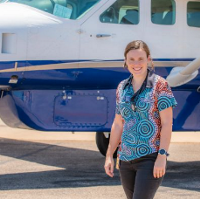AMD eBulletin – 20 June 2024
A message from your President

Kaya, g’day and kia ora!
2024 is flying by and after the College’s Annual General Meeting we now have several new RACP Board members. Our Adult Medicine Division (AMD) Council and I look forward to working with our new College President, Professor Jen Martin and a refreshed College Board.
I am now in my final year as President of AMD and would like to highlight how I am proud of, have learnt from, and greatly enjoy working with our AMD Executive, Council, and College secretariat staff in developing and actioning our work plan over the last two years.
We are a large, broad, and diverse Division with over 16,000 members, encompassing three College Chapters (Addiction Medicine, Palliative Medicine, and Sexual Health Medicine) and 33 medical specialties. This is our strength. Our diversity provides a range of differing and valuable perspectives, however that doesn’t mean we don’t listen or agree on a path forward.
Our work plan continues to focus on:
- Workforce
- Equity, fairness, and transparency in advanced training selection
- Developing the physician leader
- Rationale, value, and function of AMD within our College
- Supporting wellbeing of trainees and Fellows.
Some of this involves advocating and working with other areas of the College, while others provide an opportunity for AMD to lead change and deliver value to you, our members.
In the coming year, we will continue to focus on developing the physician leader (as we did in our successful 2023 Melbourne workshop) and supporting the wellbeing of trainees and especially Fellows who can, sometimes, feel their needs are ignored by our College.
AMD will be engaging in the broader College governance review to define the role of AMD. We will be involved with workforce and training initiatives including curricula renewal, rurally based training, the expanding scope of practice of non-physicians, and the proposed expansion of the role of the Medical Board of Australia (MBA) in certifying and overseeing specialist international medical graduate entry to the Australian medical workforce.
This later example regarding the expanding role of the MBA into an area that was previously largely overseen by specialist medical colleges may provide a salutary lesson to our College. It may be seen as an example where colleges’ privileged position can be quickly supplanted by others when they may be seen to not align with the broader policy environment including, in this case, the Australian Government’s National Medical Workforce Strategy. It will be important our Board, Divisions, Faculties, and Chapters reflect on this and respond accordingly as we move forward.
Incumbency can lead to complacency. I believe it was Mikhail Gorbachev who said, “If you are not moving forward, you are moving backward”.
2024 Congress & Convocation Ceremony
I attended RACP Congress at the International Convention Centre in Sydney in May. While we now may often live in an online world, there remains no replacement for chatting over coffee, being challenged with new ideas and perspectives, and bumping into new and old friends and colleagues. I had the honour of introducing Professor Don Campbell, who presented the Priscilla Kincaid-Smith Oration, and Professor Emily Banks, who delivered the Cottrell Memorial Lecture. The format of Congress was refreshingly different with a more streamlined program and the initial feedback has been positive. I look forward to seeing how the Fellowship Committee and the Board develop Congress to be an event that provides our College’s diverse membership with a fitting format for learning, sharing, and shaping what is key to our professional identity, collegiality.
The College’s Convocation Ceremony followed on from Congress and was held on Saturday, 18 May. The Ceremony remains one of the great traditions and celebrations of our College and it is always a pleasure seeing new Fellows celebrate their achievements with their friends and family.
AMD Council membership
I want to extend my appreciation to the following AMD Council members whose terms have recently concluded: Dr Tina Ahluwalia, Elected Fellow, Australia; Professor Barbora De Courten, AMD Lead in CPD; Dr Tom Wilkinson, Advanced Trainee Representative; and Dr Claire Barrett, Specialty Society Representative for the Australian Rheumatology Association. Their contributions to AMD Council meetings and activities have been appreciated over the years. I hope they continue to be involved in College activities and I look forward to welcoming new AMD Council members soon.
As always, if you have any topics that you would like our Division to consider or any topic you would like to be included in our quarterly eBulletin, I encourage you to contact me via the secretariat at adult.med@racp.edu.au.
Professor Graeme Maguire
President, Adult Medicine Division
AChSHM President’s Post

Hello and Kia ora,
I'm excited to share some updates from the AChSHM committee as we gear up to bolster our advocacy efforts, particularly in light of the impending launch of the Australian National HIV Strategy.
One of our key focuses is the development of a policy position on HIV. This work will underpin advocacy on current and emerging health issues, such as equitable access to Pre-Exposure Prophylaxis (PrEP) and HIV testing. By taking a proactive stance on these issues, our committee aims to significantly enhance our advocacy impact and play a pivotal role in shaping policies that advance HIV prevention and treatment measures.
In addition to this, our commitment to eradicating HIV transmission within Australia and Aotearoa New Zealand remains unwavering. We are actively engaged in raising awareness of HIV clinical indicator testing, a crucial step towards achieving our goal. This involves collaboration with a diverse range of stakeholders, including other medical colleges, governing bodies, faculties, and external organisations.
I'm pleased to highlight a recent initiative that underscores our dedication to this cause; the phased distribution of letters to relevant medical colleges and specialty societies aimed at increasing awareness of HIV clinical indicators. This joint initiative with ASHM exemplifies our determination to drive meaningful action against HIV transmission through proactive advocacy.
Together, we’ll continue to make a positive impact in the fight against HIV.
If there are any items you would like to raise with the Committee, or if you have any feedback for us, please feel free to contact us through our secretariat at shmed@racp.edu.au via the RACP Online Community (ROC)
Dr Massimo Giola
Australasian Chapter of Sexual Health Medicine President
AChPM President’s Post

Hello and Kia ora,
Our Committee has taken on an important role in supporting the Youth Appropriate Health Care Working Group (YAHCWG) as they champion tailored healthcare services for young individuals. As the YAHCWG approaches the completion of this important work, the AChPM Committee will continue to offer support and guidance.
We're also actively advocating for improved access to specialised palliative care services through telehealth and Medicare Benefits Schedule (MBS) provisions. This effort is especially crucial in addressing healthcare disparities in rural and remote areas, emphasising the need to reinstate specialised telehealth items.
In line with this mission, the College has been proactive in submitting responses to the Medical Board of Australia regarding the revised Guidelines for Telehealth Consultations. These submissions, enriched by compelling case studies, effectively underscore the benefits of telehealth in palliative care delivery.
Moreover, in response to a request from The Hon Mark Butler MP, the College has conducted a comparison between phone-based telehealth and video consultations, the outcome of which can be found in the RACP Submission to the MRAC Post Implementation Review of MBS Telehealth Items, November 2023. The insights from this analysis have been shared with the MBS Continuous Review Advisory Committee, furthering our advocacy efforts.
Finally, your Committee and Training Committee continue to advocate for trainees and Fellows. Most recently voicing to the College Executive strong concerns regarding inadequate resourcing to support the rapid growth in both the Advanced Training (including curriculum renewal) and Clinical Foundation in Palliative Medicine (previously diploma) programs.
Thank you for your ongoing support.
If you have any feedback, questions or concerns to bring to the Committee, please feel free to contact us through the Chapter secretariat at PallMed@racp.edu.au or via the RACP Online Community (ROC).
Associate Professor Peter Poon
Australasian Chapter of Palliative Medicine President

Hello and Kia ora,
Our Committee has been supporting the development of an RACP position statement led by the joint AChAM/AFPHM Drug Policy Working Group to provide the rationale and evidence for a more health-focused approach to substance use to inform policy development by governments and organisations across Australia and Aotearoa New Zealand. Following the recent conclusion of the internal consultation phase, the draft Drug Policy Position Statement will be refined prior to undergoing review by the College Policy and Advocacy Council Executive Committee (CPAC-EC) before inviting feedback from external stakeholders.
The position statement outlines the College’s position on effective drug policy including preventative and harm reduction measures, evidence-based treatment services, and regulatory options to reduce harm from substance use.
Members of our Chapter and Committee have also been involved in a joint RACP/RANZCP working group tasked with updating the RANZCP’s Problem Gambling Position Statement (PS45) published in 2017.
By fostering collaboration and leveraging the collective expertise of our colleagues, our Committee is firm in its commitment to ensuring that these documents reflect a comprehensive understanding of these issues and that they be used to guide evidence-based policies across Australia and Aotearoa New Zealand.
Finally, the next APSAD conference is scheduled to take place from Wednesday, 30 October to Saturday, 2 November 2024, at the National Convention Centre in Canberra. A Chapter Fellows meeting will be held during the conference on Thursday, 30 October at 1pm (AEDT), accessible via videoconference. Thank you for your continued support.
The AChAM Committee next meets on Tuesday, 16 July. If you have any feedback, questions, or comments for me or the Committee, please get in touch through our secretariat at AddictionMed@racp.edu.au.
Professor Adrian Dunlop
Australasian Chapter of Addiction Medicine President
Expressions of Interest (EOIs)
All Expressions of Interest
2024 King's Birthday Honours list
Congratulations to the 23 RACP Fellows recognised in the 2024 King's Birthday Honours list. These awards highlight the outstanding work RACP members do and the importance of that work in local, national and international communities.
Aotearoa New Zealand
Officer of the New Zealand Order of Merit (ONZM)
Associate Professor Rohan Valentine Ameratunga FRACP
For services to immunology.
Professor Phillippa Poole FRACP
For services to medical education.
Australia
Officer of the Order of Australia (AO) in the General Division
Professor Jo Anne Douglass FRACP
For distinguished service to medical research, to clinical immunology and allergy, to respiratory medicine, and to tertiary education.
Member of the Order of Australia (AM) in the General Division
Clinical Associate Professor John Stanley Cullen FRACP
For significant service to geriatric medicine as a clinician, researcher, health innovator and advocate.
Professor Katina D'Onise FAFPHM
For significant service to public health through translational research, and policy and legislative reform.
Dr Kathleen Margaret Eagar FAFRM (Hon)
For significant service to community through health services research and development, and as a mentor.
Dr Eileen Gallery, Roseville FRACP
For significant service to nephrology, to obstetric medicine, and to tertiary education.
Professor Sharon Ruth Goldfeld FAFPHM, FRACP
For significant service to paediatric medicine as a clinician and academic, and to public health research.
Associate Professor Christine Jeffries FRACP
For significant service as a paediatrician, to rural and remote medicine, and to the Indigenous community.
Conjoint Professor Tracey Anne O'Brien FRACP
For significant service to cancer medicine, to medical research and education, and to professional bodies.
Emeritus Professor Michael Paul Pender
For significant service to medicine, particularly neurology and multiple sclerosis research, and to tertiary education.
Professor Helen Kathryn Reddel FRACP
For significant service to respiratory medicine, and to medical research.
Clinical Associate Professor Christine Philippa Rodda FRACP
For significant service to paediatric endocrinology, to medical research, and to tertiary education.
Professor David McRae Russell FRACP
For significant service to general medicine, to clinical education, and as a mentor.
Professor Gregory Michael Scalia FRACP
For significant service to cardiology as a clinician, academic and mentor.
Medal of the Order of Australia (OAM) in the General Division
Professor Asha Clare Bowen FRACP
For service to medicine in the field of clinical disease.
Dr John Edward Gault FRACP
For service to the community of Bendigo.
Professor Anne Marie Kavanagh FAFPHM
For service to medicine, particularly disability health research.
The late Professor Emeritus William John Louis FRACP
For service to medicine as a clinical pharmacologist.
Dr Lynette Therese Masters FRACP
For service to medicine as a neuroradiologist.
Dr David Speers FRACP
For service to medicine as a microbiologist.
Awarded the Public Service Medal (PSM)
Dr Stephanie Davis FAFPHM
For outstanding public service through sustained leadership in supporting Australia’s primary health care system throughout and beyond the COVID-19 pandemic.
Associate Professor Elisabeth Murphy FAFPHM
For outstanding public service to child and family health programs in NSW.
Updates to the clinical practice guidelines for the prevention, early detection, and management of colorectal cancer
In September 2023, the National Health and Medical Research Council (NHMRC) approved updates to the Clinical practice guidelines for the prevention, early detection, and management of colorectal cancer. These updates are based on the latest scientific evidence and informed a recommendation to lower the entry age for population bowel cancer screening from 50 to 45.
As part of the 2024-25 Budget, the Australian Government has announced that from 1 July 2024 people aged 45 to 49 will be eligible to screen with the National Bowel Cancer Screening Program. Eligible people aged 45 to 49 will be able to join the Program by requesting their first bowel screening kit at www.ncsr.gov.au/boweltest or by calling the National Cancer Screening Register Contact Centre on 1800 627 701. They will also be able to talk to their doctor about getting a kit through the Program’s alternative access to kits model.
Once people aged 45 to 49 request their first kit, their next kit will automatically be mailed to them two years after their last test result—consistent with existing program practice for people aged 50 to 74.
There is no change to current program practice for eligible people aged 50 to 74 who will continue to automatically receive a bowel cancer screening kit in the mail every two years. This approach was taken after carefully considering the implications for the broader health system, including the costs and flow-on effects.
The change in age eligibility will be communicated via the Program’s website at www.health.gov.au/nbcsp and at www.ncsr.gov.au from today. Upcoming campaign activities will also include changes in age eligibility. We will also share this information with healthcare providers engaged in the alternative access to kits model; PHNs; and other key program stakeholders. Relevant program resources will be updated and be made available by 1 July 2024.
The RACP Member Wellbeing Framework – now available

As doctors, your career is all about improving the health of others — but sometimes this can come at the cost of looking after your own. While you may be less likely to suffer from lifestyle-related illnesses, reports have shown that you are more vulnerable to mental health and wellbeing issues compared to the general population.
The RACP’s previous work on the Health of Doctors identified that one reason you may struggle with self-care is due to your natural tendency to prioritise others before yourself. This risk can lead to negative impacts on your own health, which can in turn affect patient care and their families.
To raise awareness about the importance of prioritising your health and wellbeing while supporting your professional journey, the College’s Member Health and Wellbeing Committee developed the RACP Member Wellbeing Framework. The Framework sets out overarching domains of wellbeing, provides links to relevant resources for each domain and includes a link to an evidence-based self-assessment tool, plus so much more.
Read the Framework or find out more.
Take the new Fellow survey
.jpg?sfvrsn=1dc4dd1a_1)
Did you complete an RACP Advanced, Faculty or Chapter training program between 1 April 2022 and 31 May 2023? Then you are invited to complete this year’s New Fellow Survey to share your experience as an early career physician.
The 15-minute anonymous online survey will ask respondents how their RACP training program has prepared them for Fellowship. Feedback will help us provide tailored resources and support for members and make evidence-informed improvements to our training programs.
The survey is open until Sunday, 14 July 2024 at 11.59pm AEST.
For more information about the anonymous 15-minute survey, including confidentiality and how the data will be reported, please visit the New Fellow Survey page on the RACP website.
Thank you to those Fellows who have already participated in this year’s New Fellow Survey.
Find out more and take the survey here.
National Lung Cancer Screening Program (NLCSP) website is now live
The Australian Government Department of Health and Aged Care is excited to announce the launch of the National Lung Cancer Screening Program (NLCSP) website. You can visit the website here: National Lung Cancer Screening Program.
The NLCSP website offers valuable information for participants, healthcare providers, and other stakeholders, including:
- Importance and eligibility: Learn why lung screening is crucial, who qualifies for the program, and how the screening process works.
- Implementation details: Get updates on the program's rollout and the ongoing efforts to ensure it is equitable, accessible, and culturally safe from July 2025.
- Healthcare providers' role: Understand the vital role healthcare providers play and the support available to ensure the program's success.
- Advisory bodies and contacts: Find information about the program's advisory bodies, clinical and jurisdictional contacts, and how to reach the Department.
The website will be regularly updated with the latest information on the program’s design and implementation, including opportunities for stakeholder consultation and collaboration.
Please share this information with your networks and contacts. For any questions or to suggest additional information for the website, please email lungcancerscreening@health.gov.au.
PBS medicines that can now be approved online
Services Australia has been working with the Department of Health and Aged Care to increase the number of PBS items that can be approved in ‘real time’ using the Online PBS Authorities System (the system).
Prescribers can submit certain Authority Required ‘Written’ (written) PBS medicines on the schedule using the system. Over time, more written PBS medicines across broader medicine groups will be added to the system for ‘real time’ approval.
In the future, they will also be improving the system’s digital capability to support the transition of Authority Required (Written) medicines for online access.
For more information about the online PBS Authorities system, visit www.servicesaustralia.gov.au/hppbsauthorities

Internal Medicine Journal
The latest issue of the Internal Medicine Journal (IMJ) is now live on the Wiley Online Library and the RACP website (log in using your RACP login credentials). Access articles tweeted on IMJ's Twitter account for free, for a limited time. The easiest way to access the IMJ is via the Wiley Online Library App, find out how you can access it.
Key highlights from the issue are:
- Calcium sensing receptors and hypercalciuric hypocalcaemia
- Probiotics: are they beneficial?
- Fabry-specific treatment in Australia
- Patients with very high risk of fracture
- JAK2-mutated polycythaemia
Read the journal
Changes to Qld Medicines and Poisons Legislation
Effective 1 May 2024, new amendments to the Queensland Government's Medicines and Poisons legislation will enhance access to certain medicines for Queenslanders. Her Excellency the Governor, with the advice of the Executive Council, approved the Medicines and Poisons (Medicines) Amendment Regulation 2024.
Key updates include:
For Registered Nurses (EPA-RN):
- COVID-19 vaccine: Removal of the mandatory COVID-19 vaccination training requirement.
- Expanded vaccine list: Inclusion of Cholera, Rabies (pre-exposure), Typhoid, and RSV immunisation.
- Administration locations: Registered nurses can now administer vaccines in more locations, including aged care facilities, general practices, community pharmacies, relevant health service facilities, and approved immunisation program facilities.
- Hormonal Intrauterine Devices: Addition of devices like Mirena® and Kyleena® to EPA-RN Part C.
- Educational requirements: Employers can approve rural and isolated practice area programs of study for RNs under EPA-RN Part B. A supporting factsheet is available.
For Midwives (EPA-Midwives):
- COVID-19 vaccine: Removal of the mandatory COVID-19 vaccination training requirement.
- Expanded vaccine list: Inclusion of RSV immunisation and remaining National Immunisation Program Vaccines.
- Family immunisations: Midwives can now administer immunisations to the entire family unit.
- Hormonal Intrauterine Devices: Addition of devices like Mirena® and Kyleena®.
For more information, please contact Mrs Una Schumacher, Director of Nursing, Office of the Chief Nurse Officer, at 07 3328 9678 or OCNMO_ProfessionalCapability@health.qld.gov.au.
Pomegranate Health podcast – Ep109: Cultivating a rural workforce

Australia is a big and sparsely populated continent. Twenty-eight percent of Australians live in areas classified regional, rural or remote and their access to health services is much more limited. It’s estimated that between 2009 and 2011 there were 19,000 excess deaths in regional and remote areas as compared to the major cities. No doubt, socioeconomic disadvantage is a factor in that mortality gap, but inequitable access to healthcare is also a major driver. In this podcast we focus specifically on the shortage in health practitioners in the regions.
Even in regional centres, the density of physicians by population count is two thirds what it is in the major cities. By the time you get to large rural towns it’s just over a third that baseline. In this podcast we discuss opportunities to lift recruitment and retention. This means improving the experience for trainees and the esteem for rural medicine in the eyes of the profession at large.
Guests
Adjunct Professor Graeme Maguire PhD FRACP MHM MPHTM (President Adult Medicine Division, RACP and Director of Medical Education, WA Country Health Service).
Dr Sarah Straw FRACP (WACHS Kimberley Regional Physician Team; Northern Hospital, Melbourne; Rural, Regional and Remote Working Group, RACP).
Associate Professor Matthew McGrail PhD (Head Regional Training Hub Research, University of Queensland).
Please visit the Pomegranate Health web-page for a transcript and supporting references. Login to MyCPD to record listening and reading as a prefilled learning activity. Subscribe to new episode email alerts or search for ‘Pomegranate Health’ in Apple Podcasts, Spotify, Castbox or any podcasting app.
https://www.racp.edu.au/pomegranate/view/ep109-cultivating-a-rural-workforce
College Learning Series: Tell us your favourite lecture and why
.jpg?sfvrsn=34dadd1a_1)
The RACP is seeking your feedback on gaps and opportunities for improvement in the College Learning Series (CLS).
We also need your help to identify exemplar lectures. Tell us which CLS lecture/s you liked and why.
Your feedback will help future presenters deliver high quality, engaging lectures that meet your needs and expectations.
Update your details with the College
Did you know that you can now update your address details online? Simply Login to MyRACP and go to “Edit my details”.
Mentor match your way to success on the ROC

Mentor Match is designed to support your professional development needs. It’s an innovative, online tool that facilitates the establishment of mentoring relationships. It is user-driven, allowing registered Mentees to search among registered Mentors using specified criteria to find individuals whose experience and expertise match areas in which they wish to be mentored. Likewise, registered Mentors can search for and identify potential Mentees. Mentor Match is a benefit of membership and is available only to members via the RACP Online Community (ROC).
Log in to the ROC and find out more
RACP Benefits – your new lifestyle benefits program has arrived

Save on all your favourite lifestyle and service brands from leading retailers across Australia and Aotearoa New Zealand – with RACP Benefits. Our new lifestyle benefits portal offers you exclusive discounts and genuine savings on items in a range of popular categories. To celebrate the launch of RACP Benefits, we have some great offers for you to explore.
So log in today and take advantage of your RACP Benefits.
Pomegranate Health podcast: Your contributions welcome
The RACP podcast, Pomegranate Health, has published over 100 episodes since starting out eight years ago.
To provide more frequent and focused content we’re seeking contributions from our speciality societies, committees and affiliated professional organisations.
To hear what this would sound like, listen to the episodes tagged [IMJ On-Air]
These episodes feature authors published in the Internal Medicine Journal being interviewed by the relevant section editor.
They have covered themes as varied as asthma management, hospital-acquired complications, causes of readmission and the JEV outbreak.
You already spend considerable time preparing lectures and webinars for your colleagues. Audio podcasts provide an easy way to reach thousands more around the world. Each episode gets downloaded around 6500 times over the first 12 months from publication, with 21 per cent of listeners located outside of Australia and Aotearoa New Zealand.
All you need to do is to organise one or more presenters and an interviewer familiar with the material. The podcast producer will coordinate an online recording lasting about one hour and then edit it down before publication. The intention would be to ‘brand’ regular episodes from your specialty society or organisation in the same way that we’ve done with [IMJ On-Air].
Please send any questions or ideas to podcast@racp.edu.au
View career opportunities on the RACP website.